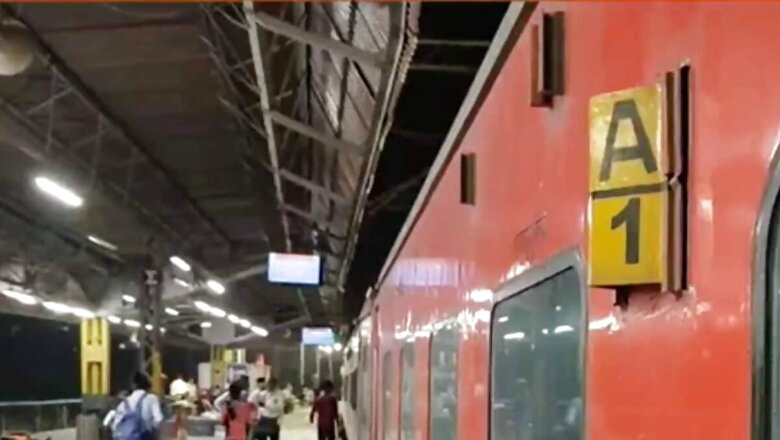
views
The current train travel time of 4.25 to 6.30 hours between Bengaluru and Chennai could come down to just 2 hours after a new semi-high-speed broad gauge line is established between the two southern cities. The Railways is conducting a final location survey (FLS) and a tender has been floated in this regard.
The design speed of the proprosed line is pegged at 220 kmph while the operational speed will be around 200 kmph. A fund of Rs 8.30 crore has been allocated by the Railway Ministry for this survey between Byappanahalli in Bengaluru to Chennai Central, covering a distance of 350 kmph.
The firm selected for the final location survey (FLS) will also be responsible for several other things such as conducting aerial LiDAR survey, developing a detailed final alignment, carrying out a traffic study, preparing detailed plans and estimates, and submitting a Detailed Project Report (DPR). It will take around 3 months to carry out these tasks and submit the survey report.
“The survey will help railways to identify the required land and alignment for the semi-high speed rail line. This will be submitted to the railway board along with cost estimates for approval. The board will have to sanction the project,” said a senior official.
Presently, Vande Bharat Express is the fastest train on the Bengaluru-Chennai corridor with an average speed of 81kmph as it takes around 4 hours and 25 minutes to complete this journey.
“Covering the Bengaluru-Chennai route in two hours is feasible, however, it relies on the quality of the infrastructure in place. It remains unclear whether the proposed route will follow the existing railway or pass through Krishnaigiri,” KN Krishna Prasad, railway activist and member of NGO Karnataka Railway Vedike, said.
“It’s also important to install fencing along these routes to prevent any human or animal interventions. Additionally, construction of new overpasses, particularly at railway level crossings, water bodies as well as tunnels through hillocks, is necessary. Adequate training for staff is also essential.” he said.
Source












Comments
0 comment